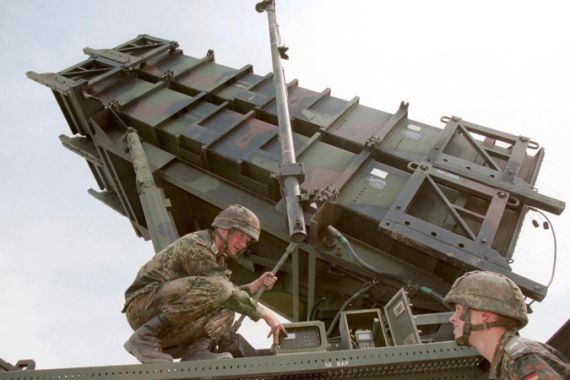Survey: Global failings in defence corruption
Watchdog’s study finds Only 12 percent of countries have “highly effective” legislative scrutiny of defence contracts.

More than two-thirds of countries, including many of the world’s largest arms traders, have inadequate safeguards to prevent corruption in their defence sectors.
Germany and Australia are the only countries out of 82 surveyed by Transparency International UK with strong anti-corruption mechanisms, according to what the watchdog said on Tuesday is the first index measuring how governments counter corruption in defence.
Fifty-seven of the countries, almost 70 percent, had poor controls against corruption, according to the survey, which rated governments by criteria such as the strength of parliamentary oversight of defence policy and the standards expected of defence firms.
The 82 countries surveyed account for 94 percent of global military expenditure in 2011, worth $1.6 trillion, while the global cost of corruption in the defence sector is estimated to be at least $20bn a year, the watchdog said.
Mark Pyman, director of Transparency International UK’s Defence and Security Programme, said he hoped the survey would lead governments to improve anti-corruption policies.
Corruption was dangerous, because troops “may well have equipment that doesn’t work”, and it was wasteful, he said.
“Particularly at times of austerity, the idea that it is somehow acceptable that there should be corruption in defence because it has always been so is just an outrageous suggestion,” he said.
Countries with poor anti-corruption controls included two-thirds of the largest arms importers assessed in the survey and half of the biggest arms exporters, Transparency International said.
Countires at ‘critical risk’
China, Russia and Israel, all leading arms exporters, were considered to be at high risk of corruption in their defence sectors. Among top arms importers, India, United Arab Emirates, Singapore, Thailand and Turkey were in the high-risk category.
Nine countries – Algeria, Angola, Cameroon, Democratic Republic of Congo, Egypt, Eritrea, Libya, Syria and Yemen – are at “critical risk” of corruption in their defence sector, lacking basic accountability measures, the survey said.
Countries classed as being at “very high risk” of corruption include Afghanistan, Bahrain, Iran, Philippines, Qatar, Saudi Arabia and Sri Lanka. The United States, Britain, Sweden and South Korea were among countries judged to be at low risk, while France, Spain, Italy and Poland were in the moderate-risk group.
The survey looked not only at the potential for corruption in defence contracts, but also at the risk of abuse of defence budgets and the risk of corruption in the armed forces.
Governments surveyed were given the chance to review Transparency International’s findings.
Pyman said a “shocking” result of the survey was that in half of the countries surveyed, the defence budget was either not public or it contained no breakdown of defence spending.
Only 12 percent of countries surveyed had “highly effective” parliamentary scrutiny of defence policy and only a handful protected whistleblowers who reported defence corruption.